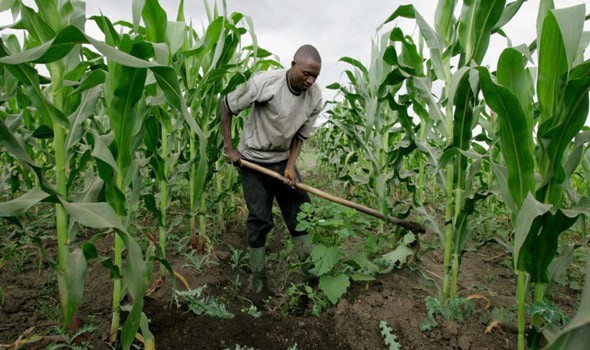PRETORIA, March 5 (Reuters) – South Africa’s economy expanded in the final quarter of last year helped by growth in agriculture and manufacturing, data showed on Tuesday, a boost for President Cyril Ramaphosa who has pledged to re-start growth after a decade of stagnation.
South Africa suffered a recession in the first half of 2018 as farming plunged but growth has since recovered, albeit at slower rates as it struggles to rebuild investor confidence after corruption scandals.
Statistics South Africa said the economy grew 1.4 percent in October-December 2018, after expanding by a revised 2.6 percent in the third quarter.
Farming – which was recovering after a drought – expanded 7.9 percent in the quarter, while manufacturing rose 4.5 percent. Mining, however, fell 3.8 percent, the agency said.
“Agriculture made a positive contribution to growth, after having declined at a double-digit pace earlier on in 2018,” Standard Chartered Bank’s Chief Africa Economist Razia Khan said.
“A more normalized performance from agriculture should help boost South Africa’s overall recovery,” she added.
The growth slightly lagged market expectations of a quarter-on-quarter GDP expansion of 1.6 percent, according to a Reuters poll.
The rand extended its session gains to trade 0.44 percent firmer at 14.1375 per dollar as of 1055 GMT.
On an annual basis, the economy grew by 0.8 percent compared to a revised 1.4 percent expansion in 2017, the statistics agency said.
In its 2019 budget, the Treasury projected the economy would grow 1.5 percent this year. But risks such as electricity supply shortages remained.
South Africa suffered its worst power cuts in several years in February after plant-related problems at state power utility Eskom, diesel shortages and planned maintenance.
Ramaphosa has pledged to split Eskom into three units – generation, transmission, and distribution – to deal with inefficiencies, a move cautiously welcomed by investors.
South Africa will also bail out Eskom with 69 billion rands ($4.88 billion) over three years.
“The news from the start of this year, including a collapse in the manufacturing PMI last month and load-shedding by a utility company, Eskom, have been downbeat. But the Q4 GDP data will provide a reasonably strong carryover into 2019,” Capital Economics chief emerging markets economist William Jackson wrote in a note.
“More fundamentally, with financial conditions having loosened and inflation set to decline over the coming months, domestic demand should strengthen.”
South Africa’s real gross domestic expenditure expanded 1.6 percent in the fourth quarter, with household expenditure increasing by 3.2 percent, Statistics South Africa said.





